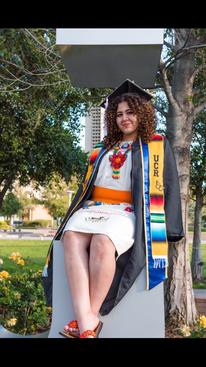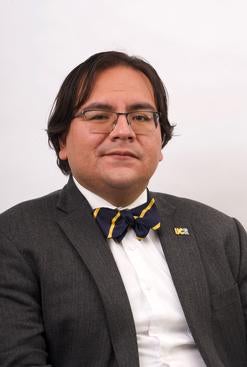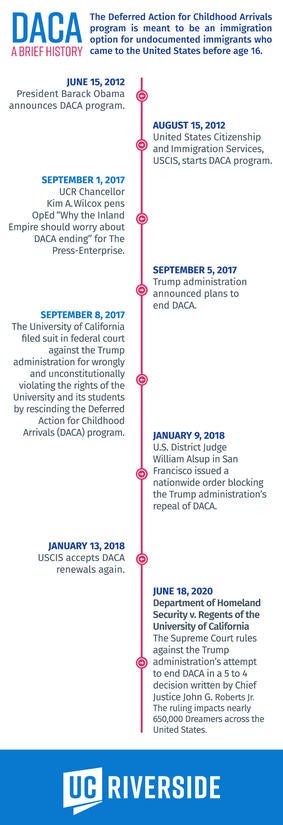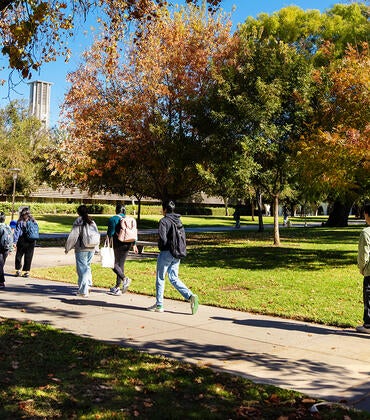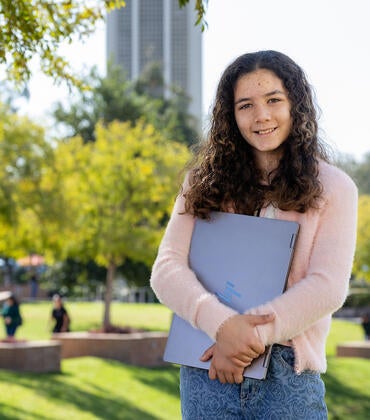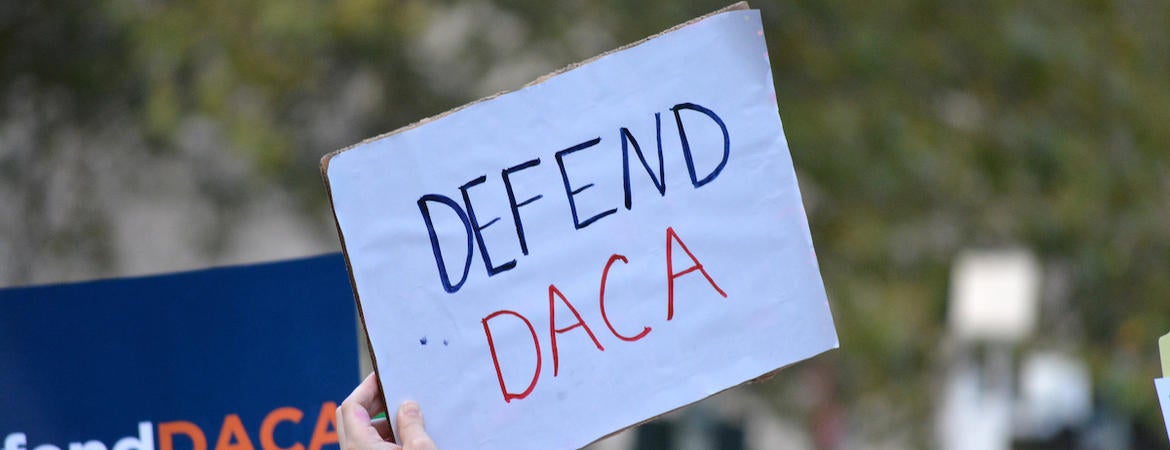
When the Supreme Court announced a ruling against the Trump administration’s efforts to rescind the Deferred Action for Childhood Arrivals program, known as DACA, many UC Riverside students felt a huge sense of relief.
“It’s definitely a weight off my shoulders,” said Goretty Rojas Quintero, who just completed a teaching credential program from UCR’s Graduate School of Education. A few days ago she moved to Adelanto, where she found her first job as a dual immersion first grade teacher.
Her future as a teacher has been in limbo for the past eight years. During this time, Rojas Quintero has lived with a sense of urgency. Her DACA permit expires in 2022.
“If I didn’t have this status, I honestly don’t feel I would have worked this hard,” said Rojas Quintero, 22, who came from Nayarit, Mexico with her mom at age 4. “I always felt I needed to finish college before my permit expires. I always work with this sense of urgency, which is why I finished my undergrad in three years.”
Rojas Quintero graduated cum laude in 2019 with a major in Spanish linguistics and a minor in education. She immediately enrolled at UCR’s Graduate School of Education and graduated last week with her multiple-subject teaching credential.
In high school she wasn’t sure she would get into college, and the thought of returning to Mexico to pursue higher education gave her frequent anxiety attacks.
Rojas Quintero is one of about 1,700 DACA students within the UC system. UC was the first university in the nation to file a lawsuit challenging the federal government’s proposed rescission of DACA, and on Thursday, June 18, the Supreme Court issued the 5-to-4 decision in Department of Homeland Security v. Regents of the University of California.
DACA is meant to be an immigration option for undocumented immigrants who came to the United States before age 16. Like UCR, the University of California system is an adamant supporter of the program. More than 650,000 undocumented young people who were brought to the United States as children currently rely on DACA for legal permission to live, work, and study. The program requires that applicants renew their permit every two years.
Thursday’s DACA ruling also brought a sense of relief to doctoral student Michelangelo Landgrave.
“I’m cautiously optimistic about the announcement,” said Landgrave, a current political science Ph.D. student with emphasis on public policy. His goal is to become a university professor. “We still need a permanent solution and need to know what the feasibility of a long-term deal is.”
Landgrave, 28, is second-generation Mexican; his grandparents moved from Germany to Mexico and his own parents left Mexico when he was a 2-year-old toddler. His family settled in the San Fernando Valley.
Landgrave’s DACA permit expires at the end of 2021. While he’s appreciative for having DACA, he also acknowledges the uncertainty that comes with it being a temporary solution to a larger immigration issue. The presidential election in November will allow him to decide if he should remain living in the U.S. or apply for jobs outside of the country, he said.
“It’s also difficult to make long-term decisions, such as having a family, children, buying a house,” Landgrave said.
Like Landgrave, knowing that DACA is still a valid option is worth celebrating, said Rocio Munante Navarro.
Munante Navarro, 24, graduated last week with a bachelor’s in economics. She also took pre-med courses because she’s focused on becoming a doctor. Much like Rojas Quintero, having DACA provides a temporary safeguard, but feeling like she needs to rush through college to achieve a career is an ever-present feeling.
“The hurry is because I want to contribute more to my family,” said Munante Navarro, whose family arrived from Lima, Perú when she was 4. “My dad is a custodian and my mom is a house assistant at a church where she’s been cooking and cleaning for the past 10 years.”
Medical school is her dream. It also comes with a future that can allow her to help her parents, both whom have had two or three jobs each in order to help support her, her brother who is at UC Irvine, and her older sister who graduated from UCLA.
“Having DACA has been a blessing. I see folks who don’t have it and I can see the struggles they face,” Munante Navarro said.
Ana Coria, coordinator for Undocumented Student Programs at UCR, said her office had a check-in call with DACA students on Thursday. All were both elated and in disbelief, she said.
For now, UCR’s immigration attorney, Alfonso Maldonado, will not be filing new DACA applications until he learns more of how the Department of Homeland Security will implement the court’ decision and gets more clarity on how the Trump administration will handle the requests.
In the meantime, Coria will help students set up consultations with Maldonado to discuss their DACA documentation needs.
Coria said her office will also raise money to support low-income students who cannot afford to pay the $495 DACA application fee.
“For folks that want to help, I would say please consider financially supporting students,” Coria said. “Having DACA means students don’t have to worry about being stopped [by police], they can travel out of state, can take internships and jobs. It’s an investment in the quality of life for our students.”
